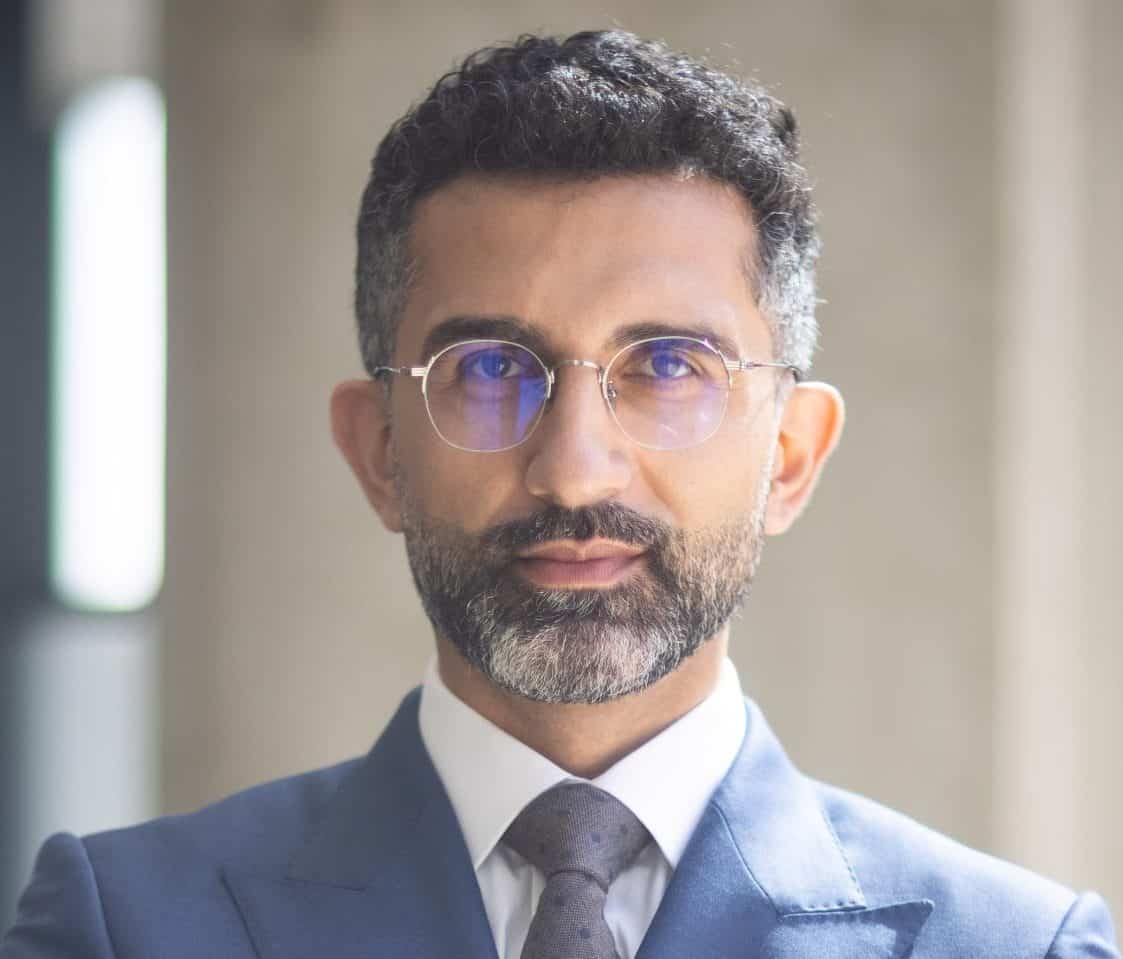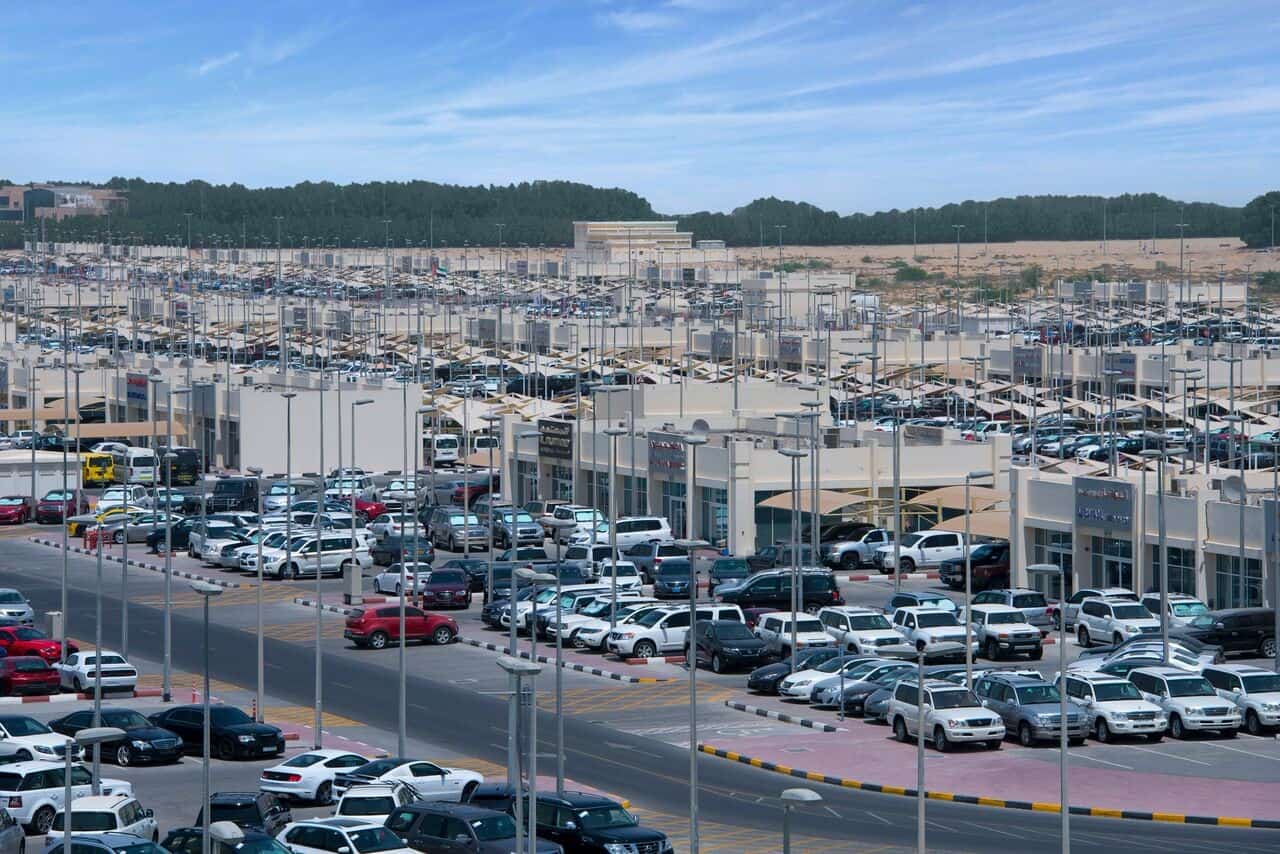DUBAI, UAE – Current trends in the automotive industry, such as zero-emission vehicles and carbon-neutral manufacturing demonstrate the growing importance of sustainability.
These trends are being driven not only by implementing stricter emissions regulations or even quotas but also by increased societal awareness of environmental and sustainability issues and growing consumer interest in sustainable vehicles.

But sustainability means more than driving electric vehicles, Hamid Haqparwar, Managing Director at BMW Group Middle East told TRENDS.
The Group believes that the future of our planet necessitates a circular economy. Thus, the entire value chain must be reimagined to reduce carbon emissions and resource consumption.
“We need to think circular in the future. Our thinking so far has always been linear. We harvest, use and dispose,” he says, adding that maintaining an open technology approach is critical for the transition to sustainable mobility.
As a premium manufacturer, BMW Group sees the future of society and how it responds to climate change and how it utilizes limited resources.
According to Haqparwar, BMW Group is placing sustainability at the center of their strategic direction across all divisions.
“We were the first automotive manufacturer worldwide to appoint our own environmental officer back in 1973. Now, we are taking sustainability to a new level, concentrating on a number of topics:
As the first German automotive manufacturer to join the Business Ambition for 1.5° C campaign, we are committed to the Paris Climate Agreement and following a course for reducing CO2 that aims to limit global warming to a maximum of 1.5 degrees.
The aim is for our entire value chain to be climate-neutral by 2050.
By 2030, we will reduce CO2 emissions per car per kilometer driven by half. Throughout the entire lifecycle of vehicles, we will achieve a 40 percent reduction from 2019 levels.
By 2030, we will release around 10 million fully electric vehicles (EVs) onto the roads. This means one of every two cars we sell in 2030 will be fully electric.
Achieving zero emissions in the GCC
Given that individual mobility will continue to play an essential role in the transportation sector, Haqparwar stated that transitioning to zero-emission vehicles and providing the necessary infrastructure is a top priority.
Thus, as the GCC economies seek to diversify and become more aligned with their respective governments’ visions, reducing emissions in the automotive industry is critical.
With an open technology approach, the Group is committed to bringing sustainable mobility to the region by widening the selection of emission-free vehicles on their line-up.
Between now and 2025, they will have at least six battery electric vehicles (BEVs) either launched or already on the roads, as well as fully electric variants of the high-volume BMW 5 Series and the successor of the MINI Countryman.
Haqparwar promises that reducing CO2 will be taken into account throughout the entire lifecycle of vehicles before they are placed on the road. This means that it will be considered from the production phase (including the primary raw materials needed), all the way to recycling.
“For example, in terms of responsible material sourcing, the UAE already plays a significant role for BMW Group,” he said.
“Early in 2021, Emirates Global Aluminum (EGA) produced aluminum commercially using solar power via a partnership with Dubai Electricity & Water Authority. As a result, production of CelestiAL solar aluminum was almost 39,000 tons during 2021 which was supplied to BMW Group,” he added.
He said they plan to offer a hydrogen fuel cell drive train to their customers in the second half of the decade.
“I am convinced that hydrogen, as one of the most efficient options for storing and transporting renewable energy, will play a significant role as fuel in this part of the world.”
Electric vehicles in the region
While the Middle East has yet to see widespread adoption of EVs and charging infrastructure in the region, the electrification of transport is closely aligned with efforts to use advanced technology to promote economic growth as part of national vision strategies.
Among the more ambitious government targets is Saudi Arabia’s pledge to have 30 percent of electric vehicles on the road in Riyadh by 2030, increasing to 100 percent by 2060.
In addition, Saudi Arabia has made significant investments in EV technology partnerships and announced a long-term plan to construct its first international manufacturing plant with an annual target production of 150,000 EV units.
Similarly, Dubai aims to increase the proportion of hybrid and electric taxis from 50 percent to 80 percent by 2025 to 100 percent by 2027.
To meet the growing demand for green mobility, UAE opened its first electric vehicle manufacturing facility in Dubai Industrial City this year, with a capacity of 55,000 units per year.
On the other hand, one of the main challenges in the region is meeting consumer expectations and lifestyle needs.
According to Haqparwar, customer acceptance of EVs is clearly growing with a demand increase for electromobility in the region.
“I think we would have seen more electrified vehicles on UAE roads this year if the global supply shortage was not as disruptive. However, I still see the current customer attitude towards EVs as a positive indicator for the long term,” he said.
“As deliveries of vehicles return to a normal time span, I predict the percentage of customers opting for electrified vehicles in the region to increase significantly,” he added.
“We are also seeing the required infrastructure continue to develop across all markets. Along with governmental incentives, this will make electromobility more attractive for customers.”
However, Haqparwar believes that maintaining an open technology approach is critical for a smooth transition to sustainable mobility in the region, so we cannot rule out the current demand for conventional vehicles.
“As we move toward a future with more emission-free vehicles, such as BEVs and hydrogen fuel cell electric vehicles, we must provide customers with options along the way,” he concluded.








